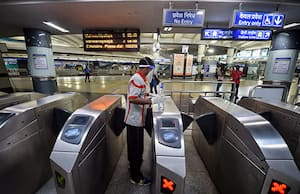Explorer
Delhi: Odd-even scheme ends with questions

New Delhi: Many Delhiites on Sunday heaved a sigh of relief as the summer edition of the odd-even vehicle rationing ended. The Kejriwal government termed it a "historic success", although its ministers have stopped saying it can be implemented for a fortnight every month. Delhi transport minister Gopal Rai said: "We studied pollution levels at 74 locations, including the neighbouring districts in Uttar Pradesh and Haryana. About 55 to 63 locations, which were inner areas, saw a reduction in pollution levels. Pollution increased in only 10 to 15 areas on the state boundaries." Air quality, according to the earth sciences ministry's pollution index, remained very poor. But the levels of ozone, a harmful gas linked to vehicle emissions, were lower than the first phase. In the Supreme Court, Chief Justice T.S. Thakur observed: "Why no difference is made out in pollution level in Delhi even after steps have been taken like odd-even scheme, diversion of trucks from the national capital? What are the solutions?" A six-member committee, set up recently to study the impact of the opening of schools and hot weather during the second round of car rationing, has been asked to do a comparative study of the two phases of the scheme. The panel has to submit its report on May 10. Greenpeace climate and energy campaigner Sunil Dahiya said even if cars stopped running in Delhi, the air quality would never reach safe limits. "Satellite data shows that Delhi is in the middle of a highly polluted stretch that extends from Punjab to Bengal. We need a regional action plan that curbs pollution from industrial hubs and thermal plants." Vivek Chattopadhyaya, the project manager of air pollution control at the Centre for Science and Environment, said: "We need a long-term plan to cut down vehicle traffic. The odd-even scheme is an emergency measure. In this second round, we learnt that no one has an answer to why garbage is being burned. It's a problem of poor management and simply blaming factories or dump yards is not enough."#Transport researcher S.P. Singh said the second round of the odd-even scheme had raised several questions - how do children get to school, what volumes of traffic occur in summer and so on. But a lot more data had been collected, which would help the authorities plan better. "What we know for sure is that last-mile connectivity, like feeder buses from metros, has to get better if we want to reduce traffic volume. There has to be restrictions on older vehicles. There are other hard decisions that the government will have to take - like shutting off power plants or construction activity if pollution peaks." Diesel cab ban A Supreme Court order banning diesel vehicles from plying as local taxis will take 27,000 of Delhi's 60000 cabs off the ro






































